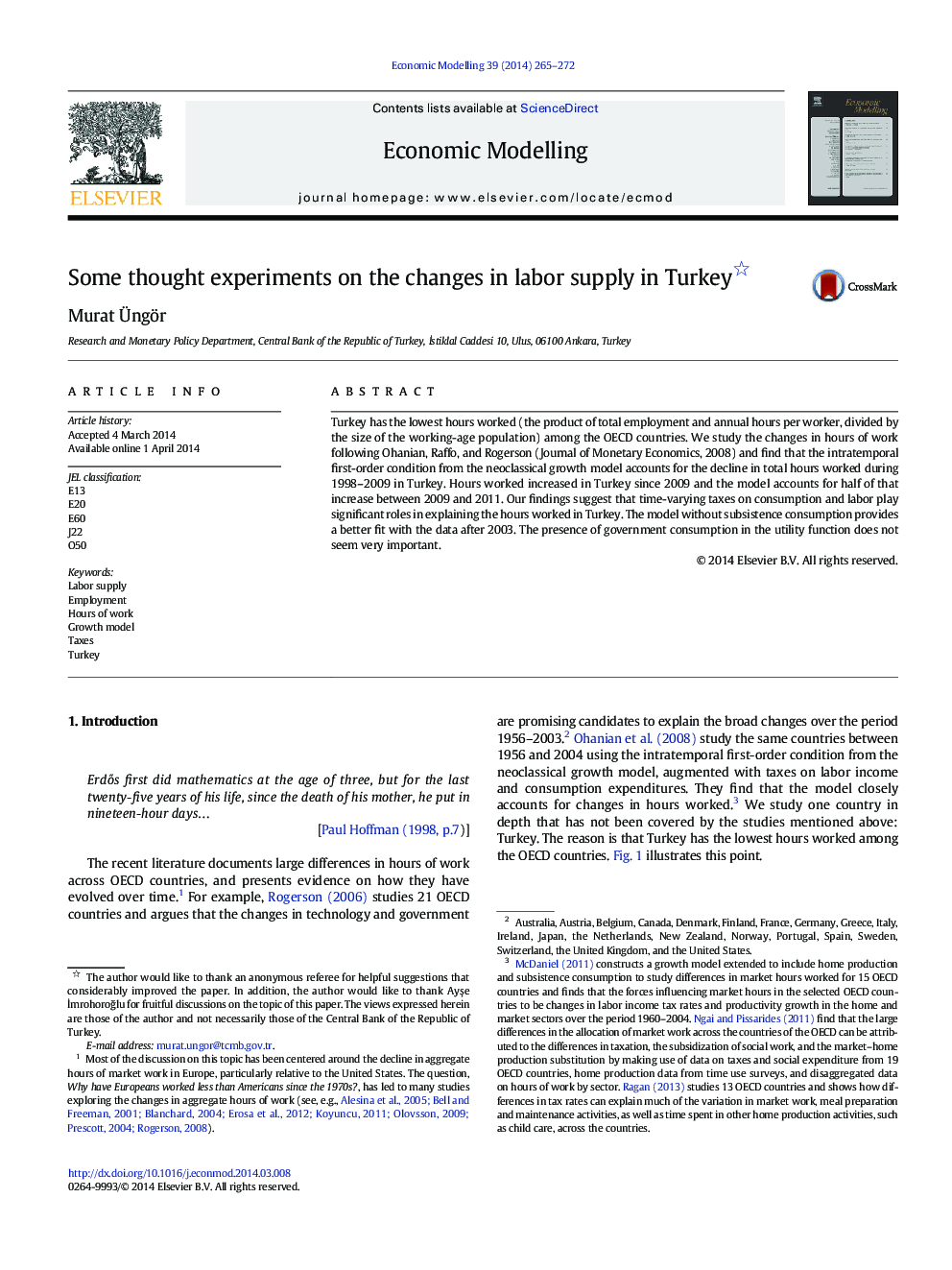| Article ID | Journal | Published Year | Pages | File Type |
|---|---|---|---|---|
| 5054256 | Economic Modelling | 2014 | 8 Pages |
Abstract
Turkey has the lowest hours worked (the product of total employment and annual hours per worker, divided by the size of the working-age population) among the OECD countries. We study the changes in hours of work following Ohanian, Raffo, and Rogerson (Journal of Monetary Economics, 2008) and find that the intratemporal first-order condition from the neoclassical growth model accounts for the decline in total hours worked during 1998-2009 in Turkey. Hours worked increased in Turkey since 2009 and the model accounts for half of that increase between 2009 and 2011. Our findings suggest that time-varying taxes on consumption and labor play significant roles in explaining the hours worked in Turkey. The model without subsistence consumption provides a better fit with the data after 2003. The presence of government consumption in the utility function does not seem very important.
Related Topics
Social Sciences and Humanities
Economics, Econometrics and Finance
Economics and Econometrics
Authors
Murat Ãngör,
